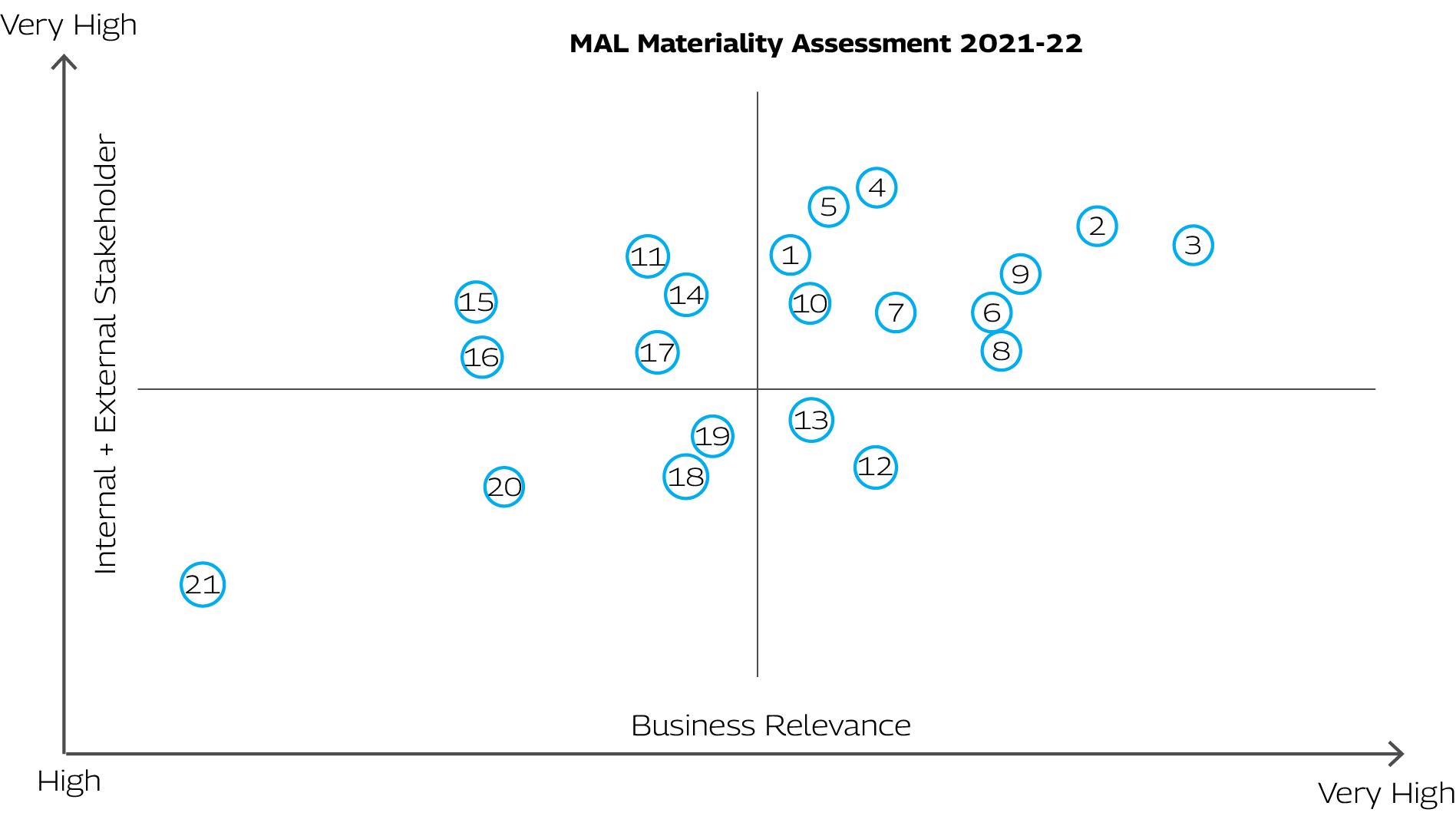Addressing issues
that matter the
most
Material issues have the potential to substantially impact our capacity to achieve our strategic objectives and create sustainable value for our Company in the short, medium, and long run. Through a systematic approach, we identify topics that are material to our business and stakeholders, ensuring that we do not miss any important factors. Regular materiality assessments enable us to take swift action on the identified concerns within the sector.
During FY 2021-22, we carried out an extensive materiality assessment to identify important issues to our business, mapping their potential impact on our operations. This helped us understand our stakeholders’ needs and aspirations, effectively translating the engagement into a long-term value-creation activity.
Materiality Assessment Process
Define purpose, scope and stakeholders
Identify potential topics
Stakeholder engagement survey
Response analysis
Senior management interaction for prioritisation of issues
Establish materiality matrix
We engaged with our internal and external stakeholders to take stock of their opinions and expectations related to issues that may impact our businesses. We engaged with 150 stakeholders and have established a materiality matrix, mapping our issues on a spectrum of ‘High to Very High’ priority.
Material Issues
- 1
Energy Management
- 2
Circular Economy
- 3
Corporate Governance and Compliance
- 4
Customer Relationship Management
- 5
Occupational Health and Safety
- 6
New Growth Opportunities, Brand Reputation and Business Continuity
- 7
Digitisation, Data Protection and Privacy
- 8
Risk and Crisis Management
- 9
Labour Management
- 10
Economic Performance
- 11
Human Rights
- 12
Technology, Product and Process Innovation
- 13
Employee Attraction and Retention
- 14
Climate Change
- 15
Operational Eco-efficiency
- 16
Employee Training and Development
- 17
Supply Chain Sustainability
- 18
Fair Employment
- 19
Diversity and Inclusion
- 20
Community Development
- 21
Air Emissions




